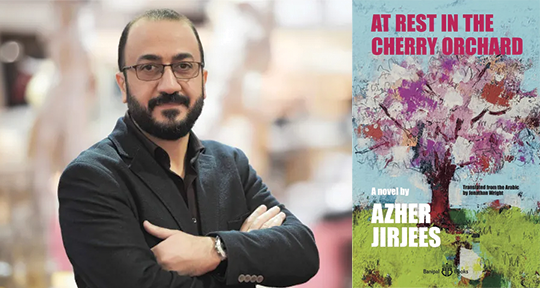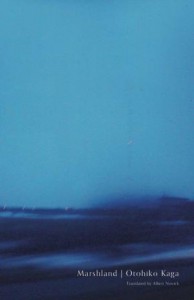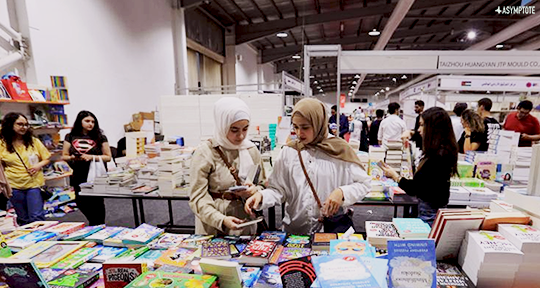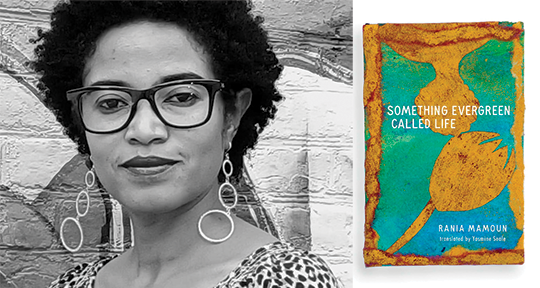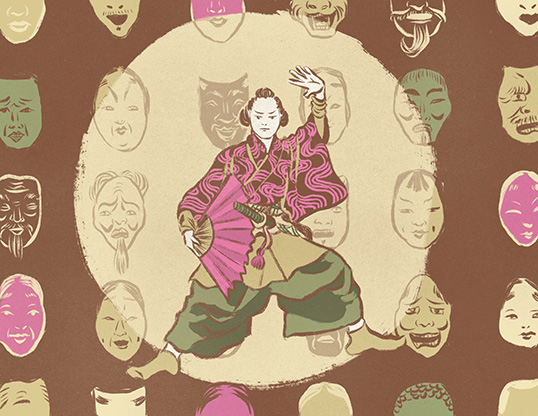At Rest in the Cherry Orchard by Azher Jirjees, translated from the Arabic by Jonathan Wright, Banipal Books, 2024.
In 2005, Journalist Azher Jirjees published Terrorism. . . Earthly Hell, an irreverent study of terrorist militias in Iraq, against the backdrop of an expectant country. That same year, elections were held, and a constitution drafted. Subsequently, Jirjees was the target of an assassination attempt and escaped Iraq, first to Syria, then to Morocco, before settling in Norway. What might have been remains unrealized, and violence, unrelenting, pervades Iraq for years. This mix of fear and promise, all too real, sets the tone of At Rest in the Cherry Orchard, the fictional autobiography of Saeed Jensen.
The original النوم في حقل الكرز was the sardonic writer’s debut novel, and had earned Jirjees a place on the International Prize for Arabic Fiction longlist in 2020. Now, Jirjees’ rendering of an Oslo postman haunted by apparitions of his dead father, abused until nearly unrecognizable, has been sensitively translated from the Arabic by journalist and translator Jonathan Wright.
In essence, this novel is a retelling, a measured unburdening of the sequence of events that lead the protagonist Saeed Jensen to return to Iraq after his exile to Norway. Our narrator is plagued by nightmares, sleeping and waking, of his faceless father, fourteen years after his forced departure from Iraq. His daily life is repetitive, monotonous to the utmost degree, the rhythm of his comings and goings etched into the snow that reconstitutes itself each night. He works as a postman, following the same route, delivering to the same houses, tracing the same motions each day in bitter cold. He lives alone, a solitary life punctuated by appearances of his father’s ghost. An email requesting his immediate presence in Iraq sparks our narrator’s return, as he remembers his life before and since leaving. READ MORE…

